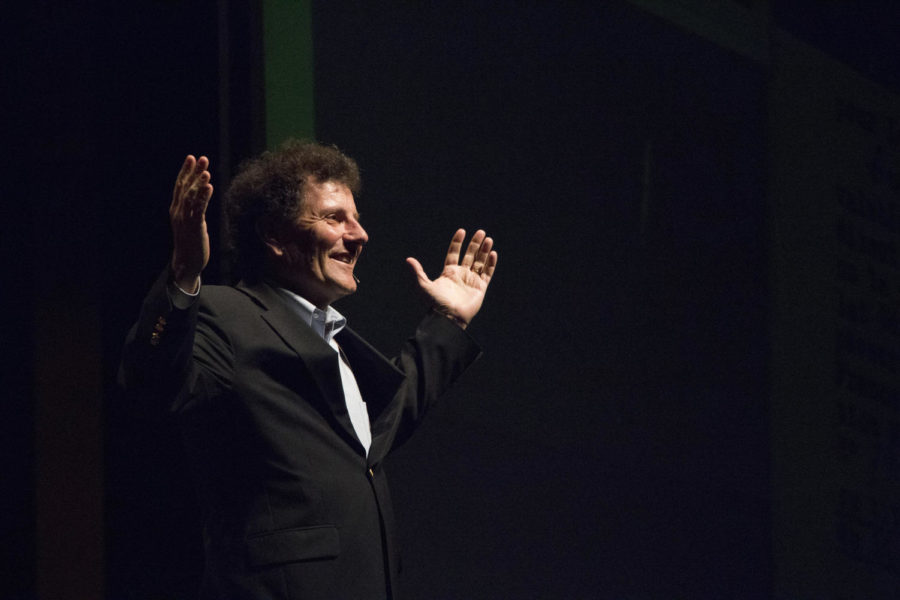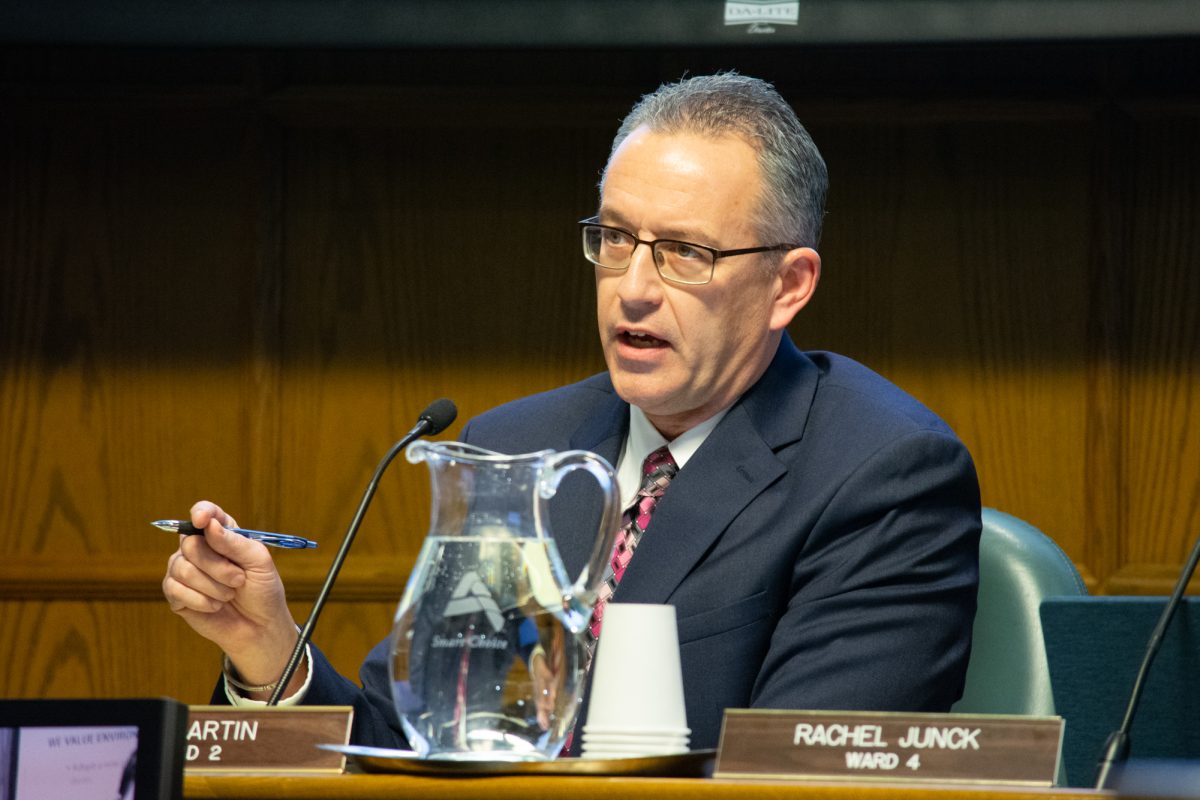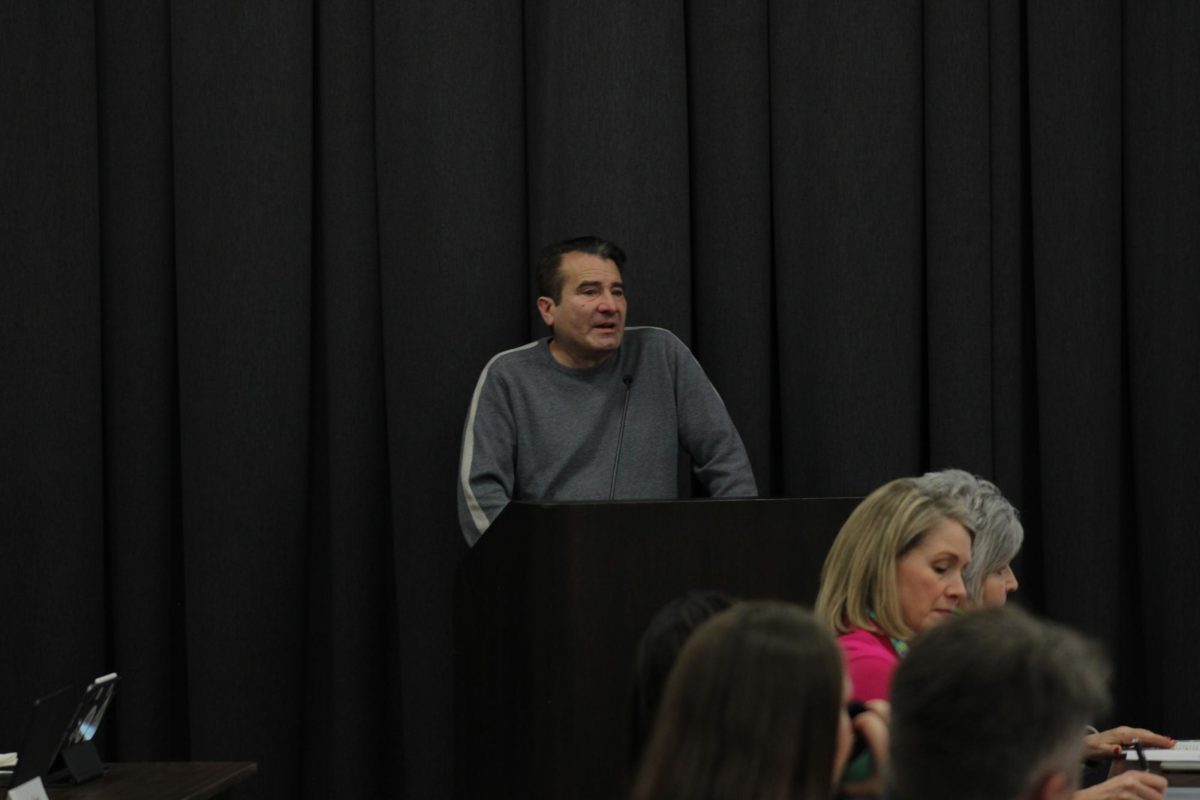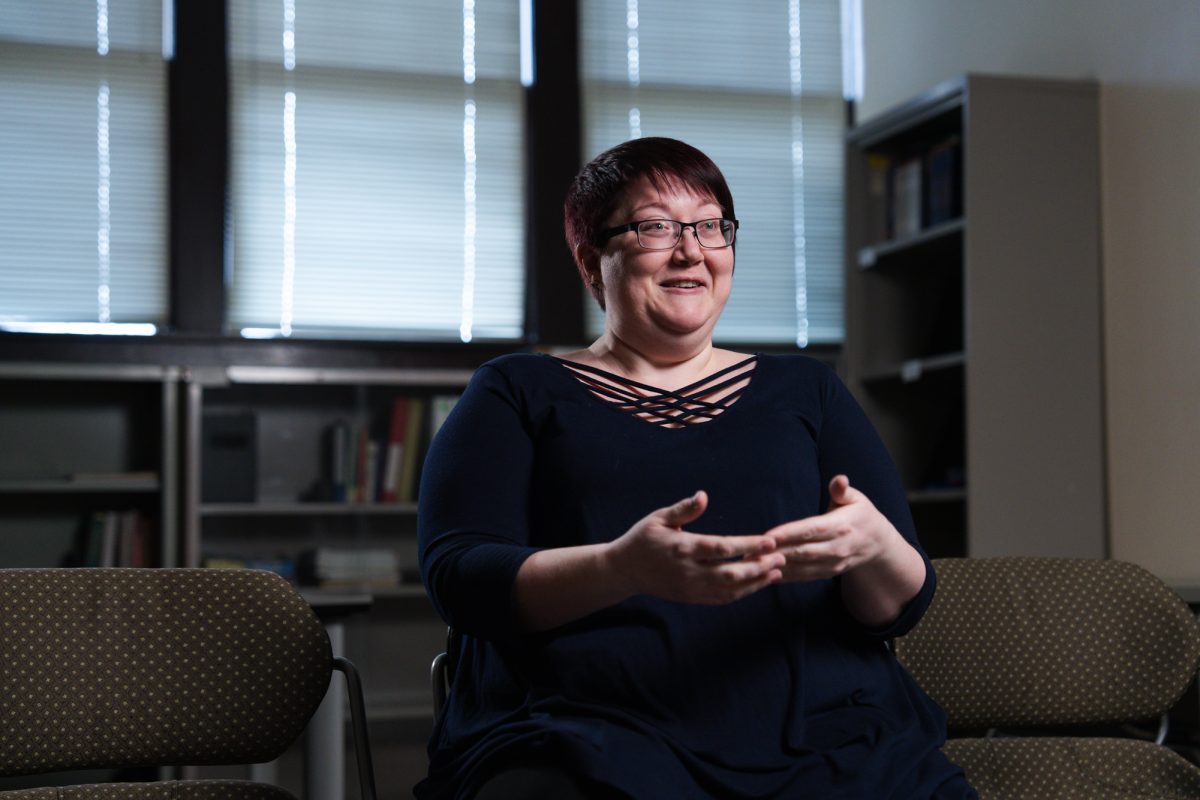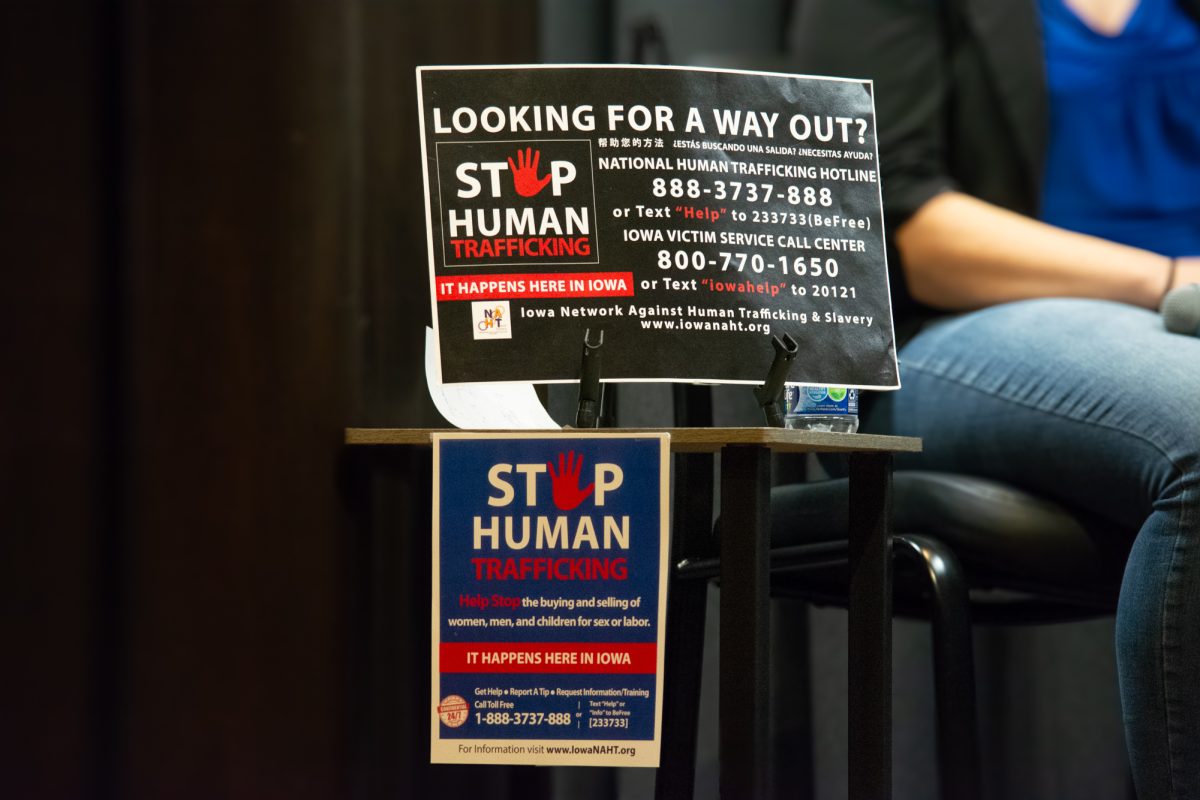Award-winning journalist offers students a look into world issues
Emily Blobaum/Iowa State Daily
Nicholas Kristof, coauthor of “Half the Sky: Turning Oppression into Opportunity for Women Worldwide” and “A Path Appears: Transforming Lives, Creating Opportunity,” speaks to students at Stephens Auditorium on Monday. Kristof said “making a difference isn’t about solving a problem in its entirety, it’s about making a difference to a specific person.”
September 14, 2015
On Monday, Sept. 14, two-time Pulitzer Prize winning journalist Nicholas Kristof spoke to students at Stephen’s Auditorium on his latest topic, “Why we should care about the world and want to change it.”
The lecture was free and began at 8 p.m., Kristof came to speak as part of the university’s World Affair’s Series: Redefining Global Security.
Students could view part one of Kristof’s documentary “A Path Appears,” which he produced in partnership with his wife Sheryl WuDunn, at the Memorial Union on Sept. 8. After the episode, which covered sex trafficking in America, there was a short discussion.
About Kristof
Kristof, a columnist for The New York Times, writes op-ed columns that appear in the Times about twice a week.
Born in Chicago, but raised on a sheep and cherry farm near Yamhill, Oregon, Kristof graduated from Harvard University and received his graduate degree from Oxford University.
Kristof has been to more than 150 countries, all of the 50 states, every Chinese province and every Japanese Island. Following his graduation with honors from Oxford, Kristof backpacked around Africa and Asia and wrote articles to live, according to his website.
Kristof and WuDunn recently co-wrote “Half the Sky: Turning Oppression into Opportunity for Women Worldwide,” which acts as a call to arms against the human rights violations that oppress women and girls within the developing world.
Kristof and WuDunn, throughout the book, walk the readers through a journey of a Cambodian teenager sold into sex slavery and an Ethiopian woman who suffered immense injuries in childbirth.
Kristof and WuDunn write on how economic progress can be unleashed by the potential of women. They write on those who have already helped expand the progress of women and make it clear on how individuals can help women progress in the world.
“Half the Sky: Turning Oppression into Opportunity for Women Worldwide,” is also a four-hour series that was shot in 10 countries. The film speaks on women and girls who live in some of the most unimaginable circumstances – but are still fighting for their rights.
Kristof also writes on issues surrounding economic empowerment, education, forced prostitution, gender-based violence, maternal morality and sex trafficking. His other book, “A Path Appears: Transforming Lives, Creating Opportunity,” along with “Half the Sky,” are both part of the Global Women and Girls Lead Initiative to promote women’s empowerment at an international level.
The Lecture
Opening with a joke saying that he feels like he is the only visitor in Iowa who is not running as a presidential candidate, Kristof swiftly began speaking on what he and WuDunn do and why.
“I think the reason Sheryl and I got engaged in these issues is we want to find an elevated greater purpose, we wanted to find issues we care about,” Kristof said.
Kristof then spoke on how issues such as human trafficking and sex slavery could possibly be going on within the 21st century. He noted that on some of the trips that he took, seeing some of the injustices out there, begged him to ask the question, how can this be happening in our country and how can we have the right to go into other countries to try to solve a problem that we have yet to resolve? This topic rattled Kristof to a point that it began to consume the majority of his writings.
“We don’t have the right to tell other countries what to do with problems going on here,” Kristof said.
Following his notes on human trafficking and sex slavery, Kristof further went into problems surrounding America today. He spoke on the the correlation between American and European teenage pregnancy and said that 30 percent of American girls will become pregnant before the age of 19.
He then spoke on how everyday medicine that Americans take for granted, such as deworming medication, could impact girls in developing countries who are most effected by the disease.
“When you have intestinal parasites, the food you eat isn’t going to you, it’s going to the worms,” Kristof said. “You’re tired, you’re listless, you’re missing school and this is something that is easily remedied by one pill, once a year, and the cost of administering such pills is incredibly cheap.”
Following deworming, Kristof noted the importance of intervening with at risk children early on, to help them have a better life.
“Talent is universal but opportunity is not,” Kristof said.
Speaking of the empathy gap in America, Kristof explained why bridging this gap between the rich and the poor, the middle-class and the impoverished is so important. Kristof promoted challenging this empathy gap though education.
Jane Kersch, a senior in political science and a member of the lecture committee, had read Kristof’s book “Half the Sky,” and was relived to hear both new and old stories being told throughout his lecture.
“I think this topic is really important to hear the personal stories of the people that are affected by the issue to humanize it,” Kersch said.
Throughout Kristof’s lecture, Kristof spoke of three people who influenced his writing and were inspirational to society, including a young girl who raised money for water for developing countries, a young black man who grew to be influential within racial issues surrounding black men and women, and Kristof’s own father.
Abhujit Patwa, a senior in political science and mechanical engineering, has been an avid follower of Kristof through his op-ed column in the New York Times.
Patwa enjoyed the lecture and most importantly the discussion on the empathy gap. He described it as an eye opener and appreciated the connection Kristof made to personalize the message by telling real life stories.


